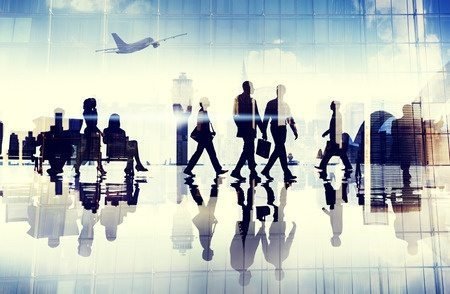Even though a job that requires you to travel all over the country or the world, three to four times a month looks appealing, it can be very detrimental to your health.
Frequent business travelers should be concerned about their health as the job comes with a broad range of physiological, psychological, emotional, and social side-effects. This is confirmed by separate studies done at Columbia University, University of Surrey and several others.
So before giving up your office job and globe trotting on your company’s dime, you should consider the harmful health effects frequent business travelers face. Or if you’re already a heavy traveller, then think about how you can reduce the negative impact.
Faster Ageing
The rate at which people age, is affected by specific genes.
Experiencing frequent jet lag disrupts genes, which when harmed, can cause memory impairment, heart attacks, or strokes.
High Exposure to Radiation
Frequent business travelers have earned the term ‘radiation workers’ because they are exposed to more radiation than is considered healthy.
In fact, such travelers are exposed to more radiation than nuclear power workers.
The higher the altitude, the higher the radiation exposure.
It only takes seven round-trip flights a year from New York to Tokyo (about 85,000 miles) to exceed the limit for public exposure to radiation.
Weaker Immune System
Frequent business travelers are exposed to more germs because they are inhaling the same recirculated air whether seated in the economy section or first class.
Often their overworked immune system cannot protect them from such exposure, since it is weakened from jet lag and general tiredness from running to and from airports.
Out of Shape and at Risk for Obesity
When you are constantly on the go, as frequent business travelers are, you do not have time to prepare/eat a healthy meal.
You will have a fair amount of airline food which is packed with sodium and sugar to withstand higher altitudes during long distances.
Even though the salt and sugar retain the taste of airline food, they harm the body.
The poor diet along with poor choices such as alcohol and the lack of exercise can put frequent travelers at a higher risk of obesity.
Risk of Mental Health Issues
As aforementioned, frequent flying can lead to chronic jet lag, which can disrupt the circadian rhythm linked to mood, judgment, and concentration for up to six days.
The stress of preparing for a trip combined with the jet lag from those trips can lead to “travel disorientation.”
Frequent business travelers are also prone to loneliness and isolation because they do not have time to meet new people or stay involved with family members that they leave behind.
Their time alone and tension that can occur between the traveler and his or her significant other, could lead to guilt, stress, and eventually mental health issues.
How to Manage Harmful Effects of Business Travel
Before you totally ban business traveling, you should know that short business trips once or twice every few months, will be less risky
Since business travel is typically a job requirement, you need to find ways to overtake the harmful effects of excessive traveling.
Employers owe it to their employees to help them maintain their health when they travel for work. Ways in which companies can reduce the toll of business travel is by:
- Offering stress reduction and relaxation training in the workplace, or sharing information about stress reduction techniques. If possible, assisting employees by modifying travel schedules to lessen the stress.
- Providing information about food alternatives when traveling or sending their employees off with small care packages that include fresh, healthy snacks that they can munch on instead of that salty-sweet airline food.
- Providing a prepaid meal card for restaurants with more nutritious menus or membership in a gym that has locations nationwide and internationally. Companies could also book rooms only with hotel chains that have gyms, and provide financial incentives to employees to exercise while traveling.
- Researching the destination in advance and making sure employees are fully prepared to handle the increased risks, if travel includes significant health or safety hazards.
Employers need to understand the risk factors that come with excessive traveling and strive to pay more attention to employee health and well-being.
In the meantime, employees can also take an initiative in their health while traveling.
- Employees could consider teleconferencing (where it makes sense) as opposed to a face to face meeting.
- You should also consider other modes of transportation, such as taking the train or driving instead of flying.
- Employees should stand or walk as much as possible in the airport, avoid moving walkways and escalators, and have a quick walk while waiting for their scheduled flight to take off instead of sitting in a chair.
- In-flight try and avoid germs by minimising contact with objects in the restroom, as well as other people’s seats. Also use hand sanitizer at regular intervals and consider BYOP (bringing your own pillow).
- Stay hydrated while on a flight. Walk up and down the aisle every now and then, and do some stretching exercises.
- If a gym is not accessible, you can also bodyweight exercises, yoga and other types of workouts from the comfort of your hotel room. There are some great sites and apps you can use for DIY workouts, which are convenient and of high quality. Have a look at FitStar, Daily Burn and Yoga Studio.
- Employees can also make time to pack healthy snacks. Try to reduce the urge to let go of your diet, which often happens when we’re away from home. Keep it as healthy as possible.

